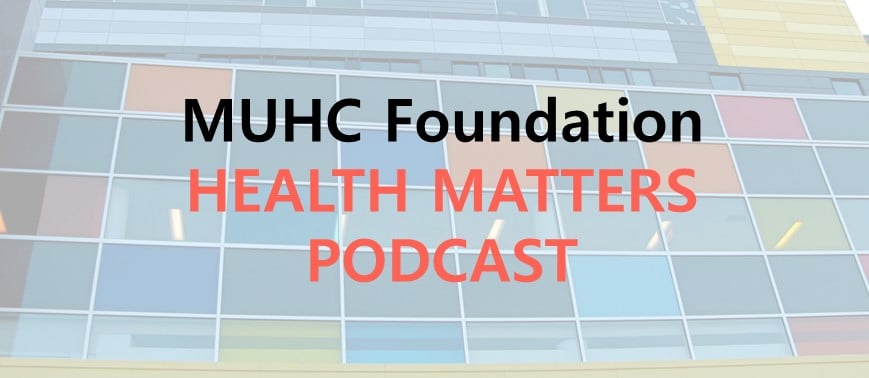This week on Health Matters, Tarah Schwartz discusses the latest innovation in lung cancer research and treatments with Dr. Nicole Ezer and Dr. Anne Gonzalez in honour of Lung Cancer Awareness month.
(Time on podcast: 12:03). November is Lung Cancer Awareness month. Lung cancer is the leading cause of death from cancer in both men and women in Canada. It is often diagnosed in late stages when survival rates are low. More people die from lung cancer than from colorectal, pancreatic and breast cancers combined.
Dr. Nicole Ezer speaks about her work in lung cancer screening and diagnosis of early stage lung cancer. Screening allows for 60%-70% of patients to be diagnosed with the disease at an earlier stage. At at early stage, medical interventions such as surgery can often cure the disease without the need for additional more aggressive treatments. The medical community are enthusiastic about the results of screening, as traditionally, 60%-70% of lung cancer has been diagnosed in its later stages, allowing only for treatment and disease management, rather than a cure. People between the ages of 55 and 74 who have a history of smoking can find out if they are eligible for screening for lung cancer. This program is new in the province of Quebec.
(Time on podcast: 32:50). Dr. Anne Gonzalez speaks to her work on improving lung cancer outcomes. Patients who are referred to the MUHC are sent there to be evaluated whether they have lung cancer, and what stage it is. At the MUHC, there is a specialized clinic for rapid investigation for lung cancer. 60-70% are diagnosed with lung cancer following their evaluation. Surprisingly, more women die from lung cancer than from breast cancer every year. While many cases are smoking related, many people diagnosed with lung cancer are actually never-smokers. We still don’t know why never-smokers develop lung cancer. Possible explanations include work-related exposures, radon exposure, genetic factors and a family history of lung cancer, among others. Treatments for lung cancer are quickly evolving and we are seeing an improvement in outcomes. There are actually many types of lung cancers. Therapies are now tailored based on the molecular markers and mutations present in the lung cancer.
Listen to the podcast
Lung Cancer: How Much Do You Really Know? The MUHC Foundation’s Health Matters. November 28, 2021
Where to listen:
Web: http://bit.ly/3aQfvVQ
Spotify: https://spoti.fi/32HFxrc
Apple: https://apple.co/35NvItS
